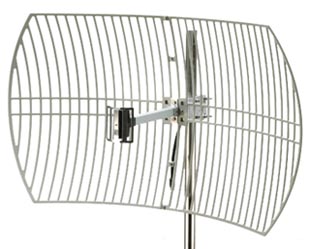Patent case could devastate Wi-Fi industry and users
Legal experts raise concern over the implications of a US court ruling regarding Australian ownership of key wireless networking patents.

A UK-based lawyer says the consequences of a Wi-Fi patent infringement case could be devastating for both makers and buyers of wireless products.
Last week the US Federal Court of the Eastern District of Texas ruled in favour of the Commonwealth Scientific and Industrial Research Organisation, an Australian government agency.
The adjudication was that the defendant, Buffalo Technology, a Texas-based maker of wireless routing products, had infringed a patent owned by CSIRO.
The judge ruled that the CSIRO holds the rights to patents on the underlying technology used in two Wi-Fi standards, namely 802.11a and 802.11g, both approved by the Institute of Electrical and Electronics Engineers (IEEE).
Judge Leonard Davis said he was 'wholly convinced by the evidence, to the point where there are no questions of fact'. Buffalo could be forced to pay between $1.5 million and $2 million in damages to CSIRO in consequence, if a likely appeal process is unsuccessful.
"If the decision is upheld on appeal or by other judges, the impact of this decision could be far reaching," Rehman Noormohamed, a lawyer with legal firm Eversheds, told IT PRO.
"Firstly, it could potentially throw some uncertainty on the future 'buy-in' and 'take-up' of a standards based approach by dissuading key players and investors in the Wi-Fi and other technology sectors to participate," he argues.
Get the ITPro daily newsletter
Sign up today and you will receive a free copy of our Future Focus 2025 report - the leading guidance on AI, cybersecurity and other IT challenges as per 700+ senior executives
This is opposite to the current trend in open standards, he says. "Secondly, any charges for such licences and royalty streams to CSIRO, on the basis vendors pay them, will simply be passed downstream to the buyer," he adds.
Any increase in unit cost in turn is likely to have a downward pressure on sales, he says: "This in turn could stifle market competition, freedom of choice and ultimately the protection of businesses and individuals alike."
The case clearly has implications for almost any vendor in the wireless market, especially with Wi-Fi chipsets embedded into a wider and wider range of electronic devices.
With Wi-Fi chipsets now so commoditised, the economic consequences of an additional layer of royalty payments could certainly affect profitability for many makers of products that incorporate them, say market analysts.
The CSIRO's own lawyers believe that more than 100 companies could end up paying royalties on its patents.
"The Judge supported CSIRO's position comprehensively," said CSIRO chief executive Geoff Garrett. "We are obviously very pleased. However, it is only a brick in the wall. CSIRO still has a long way to go."
Garrett says that many manufacturers are using CSIRO's technology without permission or licence. Dr Garrett said that he hoped that the court would determine a reasonable royalty rate owed to the CSIRO shortly.
There is likely to be a lengthy appeals process, with the full impact of the case unlikely to be known until some time in late 2007 at the earliest.
-
 Should AI PCs be part of your next hardware refresh?
Should AI PCs be part of your next hardware refresh?AI PCs are fast becoming a business staple and a surefire way to future-proof your business
By Bobby Hellard Published
-
 Westcon-Comstor and Vectra AI launch brace of new channel initiatives
Westcon-Comstor and Vectra AI launch brace of new channel initiativesNews Westcon-Comstor and Vectra AI have announced the launch of two new channel growth initiatives focused on the managed security service provider (MSSP) space and AWS Marketplace.
By Daniel Todd Published